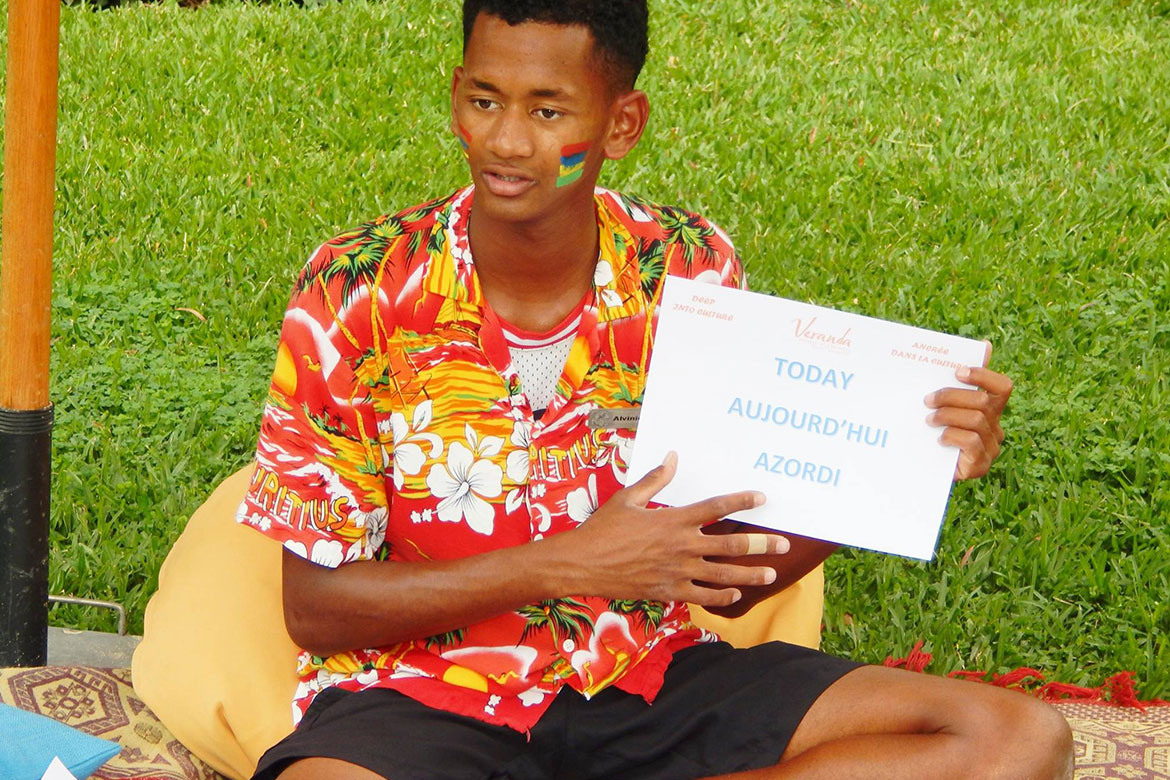YUVA Dialogue 2015 is being held tomorrow at Port Louis. This is inline with the commemoration of the International Youth Day 2015 in Mauritius. YUVA has invited YUVANs, school and university students, members of local NGOs and the press to debate on the topic, “Enhancing Youth-Elder Alliance in Governance in Mauritius”.
Youth constitute the majority of the population on the African continent. This forum explores the convergence of traditional (Mauritian Tradition) and modern ways of social engagement in political governance interactions. It discusses the imperative for youth participation in governance, as well as the challenges and opportunities for dialogue between youth and elders in governance systems. It will also discuss cultural norms that have prevented the development of collaboration between youth and elders, as well as the consequences of constricted relationships, for example the entrenchment of elders as leaders.
1) The imperative for youth-elder collaboration in governance
“What is happening to our young people? They disrespect their elders, they disobey their parents. They ignore the law. They riot in the streets, inflamed with wild notions. Their morals are decaying. What is to become of them?” — Plato, 4th Century BC (Guardian, 2009)
A 2012 study of youth across Africa published by the Mo Ibrahim Foundation and cross-checked by the Africa Governance Institute (Africa Governance Institute) captures a range of African youth perspectives on governance;
- 56% of African youth are interested in current affairs. Urban youth have a higher level of interest than rural youth.
- Less than 1⁄4 of African youth surveyed think their country is a full democracy, and less than 1⁄2 are satisfied with their democracy.
- While a majority of youth believes that violence is not justified in politics, 75% of those surveyed do not exclude the adoption of non-conventional forms of political action (including violence) if their socioeconomic situation is not improving and their political voice is not heard.
- 80% of young people do not consider emigrating abroad as a relevant solution, and all insist on the fact that the conditions of their social, political and economic integration need to be established in their respective countries and in Africa.
2) Eldership as leadership
The following proverbs show that leadership is generally considered the responsibility of elders who have accumulated years of life experience. These experiences, ostensibly, are the requisite competencies required for public office. The cultural notion of leadership as the responsibility of older individuals is reflected in the structure of several contemporary governance systems:
“A young man standing cannot see what an old man will see sitting down.” — Igbo, Nigeria
Meaning: Elders are guided by the wisdom of experience and, therefore, will always have advantage over the young.
“An Okro plant cannot grow taller than its farmer.” — Creole, Sierra Leone
Meaning: The youth (Okro plant) is planted by the farmer (elder) to whom it owes its existence and sustenance. Thus, the youth cannot be greater than the elder.
“When a kid goat bends down, it sucks from its mother’s breast.” — Swahili
Meaning: Youth are admonished to defer to elders, and reap the reward of nurturing.
3) Inhibited communication
“When the elderly person is doing things wrongly, things that are destroying or capable of destroying both the old and the young, both the present and future generations, the young is expected not to question that action even though he or she would be affected in the consequences of the wrong actions of the elder/leaders.” — Rajesh B. (Mauritius, 2015)
“We live in a country infested by young people, we live in a country where our leaders do not want to be challenged, questioned and called to order by the younger population. We live in a country where the culture and respect card gets used every time young boys and girls call their leaders to order, we live in a country where our leaders use ‘culture’ and ‘respect’ to keep the youth silent and limited.” – Aneesha Bibi Z. (Mauritius 2015)
As a result of inhibited youth expression, youth voices are faint in the structures of governance, and can be ignored by elders. Also, young individuals who attempt to criticise governance systems, failures or actions can be discredited and disgraced. Youth who dare to confront elder leaders may find themselves cast as cultural offenders, and violators of the hallowed tradition of respect.
4) Social Media and Political Expression
Social media has allowed youth to voice opinions and, to some extent, engage with elders in governance. It has been reported that there are 100 million active Facebook users in Africa (TechCrunch, 2014).
How far do you agree that young people of Mauritius are utilizing social media to improve the accountability of political leaders?
The current generation does not want to be treated as the ‘other’. They want to be engaged, they want to talk, they want to contribute. Is the Government of Mauritius doing enough to endorse Internet access and the usage of smart phones?
5) Setback and frustration in governance
“If the world has one picture of African statesmen, it is one of rank corruption on a stupendous scale. There hardly seem any leaders who haven’t crowned themselves in gold, seized land, hand over state businesses to relatives and friends, diverted billions to foreign bank accounts and generally treated their countries as giant personalized cash dispensers”. – Moyo, 2009, p.49
Note: This discussion topic has been adapted from Ms. Ify Ogo’s (PhD Candidate, Maastricht University) presentation at the MINDS Annual African Youth Dialogue 2015.



